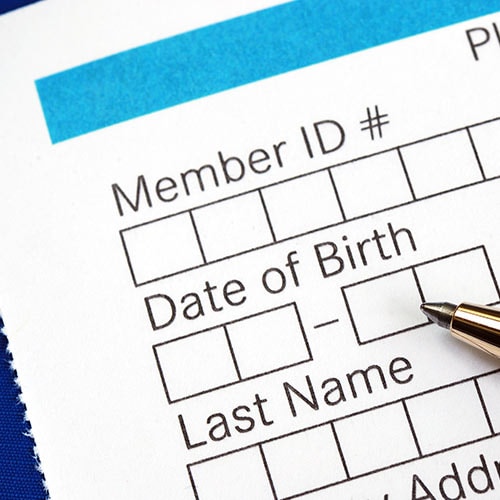Suppose you’re a person who has never bought anything online. You’ve never given out any personal information over the web, you never use email or social media, and you don’t even have an online bank account. You might consider yourself safe from someone stealing your personal information and using it illegally for their own financial gain, right?
Well, not if you’re a 5-year-old.
At that young age, children can represent a prime opportunity for an identity thief. They have a social security number, a clean credit report, and it’s unlikely that they or anyone will be checking in on their credit rating for years to come. It’s a crime called child identity theft.
A recent study from Javelin Research shows that 1 in 100 kids were victims of child identity theft in the U.S. in 2022. Two in three of the victims of child identity theft knew their identity thief either personally or online. Perhaps most upsetting, the study shows that a parent, a guardian’s partner or spouse, or a stepparent are the most likely perpetrators.
Whether called parental identity theft, child identity theft, or familial identity theft, an alarming number of parents and family members are leaving young adults with crippling financial commitments, shattered family connections, and little recourse for recovery. It’s a crime that can impact young people’s lives for decades.
From the perspective of a victim, you have to imagine the extra layers of pain inflicted. Not only has a crime been committed with your information, not only is it now your job to sort through all the repercussions, but all of this was enacted by someone in your family. That person might have disappeared from your life years ago, or they might still be living under the same roof.
Don’t pay off stolen money yourself. There is a road to recovery, and we can help.
The path to reclaiming your credit identity
Recovering from parental identity theft can be complex and time-consuming, but taking the following steps can help get your credit and financial health back on track.
File a police report
This is the first and arguably the toughest step, particularly if it involves holding a parent accountable in the eyes of the law. Creditors and credit reporting agencies want official documentation of a crime, especially when that crime has taken place between two people who know each other. A police report is your proof to financial institutions that this is a serious situation.
Change all your passwords
While you’re getting on the road to recovery, be certain that there’s no further access to your accounts by anyone but you. Change all of your passwords, don’t use the same password for different services, and create strong passwords for your email and financial accounts. Enable multi-factor authentication (MFA) on any service that offers it. Using strong passwords can be difficult at first, so consider making things easier with a password vault.
Contact the Federal Trade Commission (FTC)
In the United States, you can file a complaint with the FTC online at IdentityTheft.gov or call 1-877-ID-THEFT. The FTC will then provide you with an Identity Theft Report. This report can be used to block fraudulent information from appearing on your credit report, prevent a company from collecting debts caused by identity theft, and prevent a company from selling a debt related to identity theft
Contact the credit bureaus
You'll want to contact all three major credit bureaus (Experian, Equifax, and TransUnion) to place a fraud alert on your account. You should also get a copy of your credit report from each bureau to identify all fraudulent activity.
Dispute fraudulent transactions and accounts
Once you have your credit reports, identify any accounts or charges you did not authorize and dispute them. This process involves writing to the credit bureaus and providing copies of your police report and Identity Theft Report from the FTC.
Close fraudulent accounts
Contact the fraud departments of each business where any accounts that were never yours were opened or a fraudulent transaction occurred without your consent. Ask the businesses to close these accounts, and ask them to flag that the activity was the result of identity theft.
Monitor your credit reports
Once you’ve addressed the immediate issues, you should monitor your credit reports regularly to ensure no new fraudulent activity occurs.
Consider a credit monitoring service
Services like LifeLock will monitor your credit reports and alert you when suspicious activity occurs. This line of defense can help prevent further loss or damage to your credit records.
Consider freezing your credit
A credit freeze makes it harder for someone to open a new account in your name because creditors can't access your reports. You can enable a freeze with all of the credit bureaus, and turn that freeze off later when you’re ready.
Be tenacious about reclaiming your identity
On the road to recovery, remember it's important to stay patient and persistent. Keep your records from the companies and bureaus you contact. Lock down your credit and take measures to ensure there’s no further fraud. Restoring your identity can take time, but it's worth the effort. You got this.
Editor’s note: Our articles provide educational information. LifeLock offerings may not cover or protect against every type of crime, fraud, or threat we write about.
This article contains
Start your protection,
enroll in minutes.
LifeLock is part of Gen – a global company with a family of trusted brands.
Copyright © 2026 Gen Digital Inc. All rights reserved. Gen trademarks or registered trademarks are property of Gen Digital Inc. or its affiliates. Firefox is a trademark of Mozilla Foundation. Android, Google Chrome, Google Play and the Google Play logo are trademarks of Google, LLC. Mac, iPhone, iPad, Apple and the Apple logo are trademarks of Apple Inc., registered in the U.S. and other countries. App Store is a service mark of Apple Inc. Alexa and all related logos are trademarks of Amazon.com, Inc. or its affiliates. Microsoft and the Window logo are trademarks of Microsoft Corporation in the U.S. and other countries. The Android robot is reproduced or modified from work created and shared by Google and used according to terms described in the Creative Commons 3.0 Attribution License. Other names may be trademarks of their respective owners.





